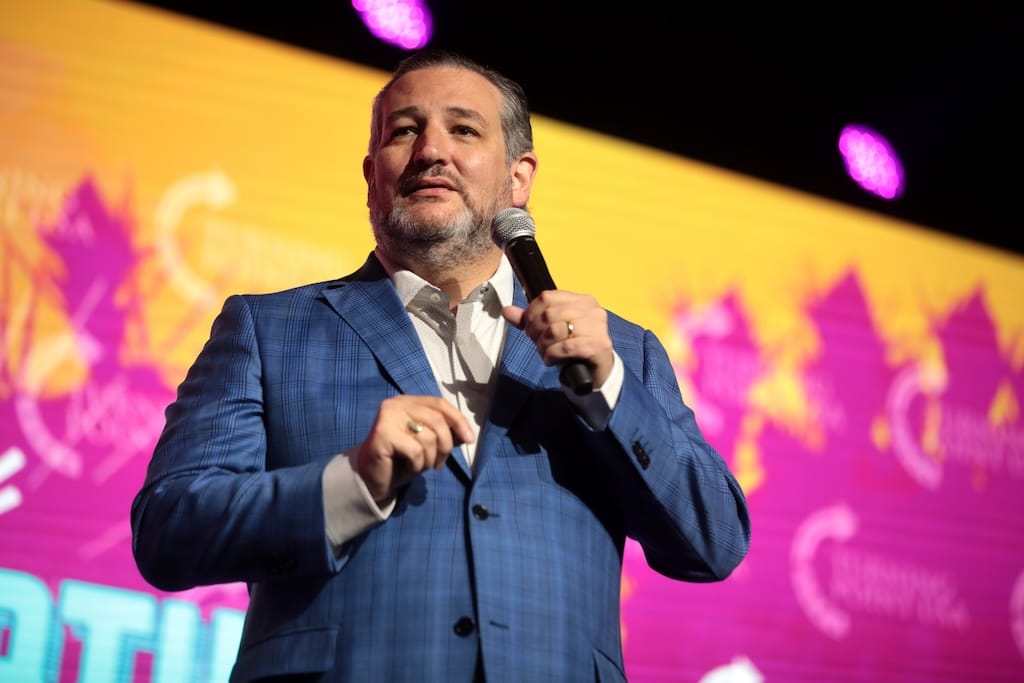Cruz Wants Congressional Appropriations to Fund Universal Service
FCC Chairwoman Rosenworcel has argued that appropriations make the USF less stable.
Jake Neenan

WASHINGTON, March 12, 2024 – Senate Commerce Committee Ranking Member Ted Cruz, R-Texas, called last week for Congress to take over the Federal Communications Commission’s broadband subsidy.
The FCC’s Universal Service Fund spends roughly $8 billion per year on broadband subsidy programs. These go to low-income households, schools, libraries, and healthcare centers, as well as infrastructure in hard-to-reach areas.

USF money comes from fees on voice providers, a contribution base that has shrunk since the fund was stood up in 1996. A bicameral working group, unaffiliated with Cruz, has for months been evaluating potential reforms to make the fund more sustainable.
Cruz would like to see USF funding come directly from congressional appropriations, he said in a paper released Thursday, arguing the commission’s ability to control both the collection and disbursement of the USF makes the fund less accountable.
“To get spending under control, Congress – not the FCC – must take charge of defining universal service and deciding where USF funds may go,” he wrote.
But he acknowledged it “may make sense” to keep the High-Cost program, which funds the construction and maintenance of broadband infrastructure in hard-to-reach areas, in the current framework “given ongoing multi year commitments to providers.” The High-Cost program makes up more than half of USF disbursements and supports long-term infrastructure subsidies like the Rural Digital Opportunity Fund.
Cruz also pushed for combining the USF’s Lifeline program with the imperiled Affordable Connectivity Program, and reiterated his opposition to expanding the E-Rate program to include off-campus Wi-Fi hotspots. He wrote that he looks forward to “developing legislation” on USF reform.
In January, FCC Chairwoman Jessica Rosenworcel told the USF working group, which is also developing legislation, that supporting the fund through congressional appropriations would negatively impact USF programs.
She cited the appropriation-funded ACP. The fund provides a monthly internet discount to more than 23 million low-income households and has garnered widespread support, but the agency is in the process of winding the program down as bipartisan legislation to fund the program has stalled in both chambers.
“The USF, on the other hand, provides ongoing, predictable support in an amount established by the commission,” Rosenworcel wrote. “The ability to count in this system has been an important part of the success of USF programs.”
The conservative nonprofit Consumers’ Research also opposes the FCC’s ability to run the USF. The group has repeatedly taken to federal court to argue that Congress did not put proper guardrails on the agency’s ability to collect fees in service of the fund, and that the FCC abused what authority it does have by delegating the job to USAC, an entity the commission controls.
The Sixth, Eleventh, the and D.C. Circuit courts have upheld the fund’s constitutionality. The Fifth Circuit originally did so as well, but agreed in July 2023 to rehear the case with a full panel of judges.
Oral arguments took place in September and a ruling has yet to be issued, but Consumers’ Research has already asked the Supreme Court to weigh in. The group argued in January the Fifth Circuit is “poised” to rule in its favor and create conflicting precedent.









